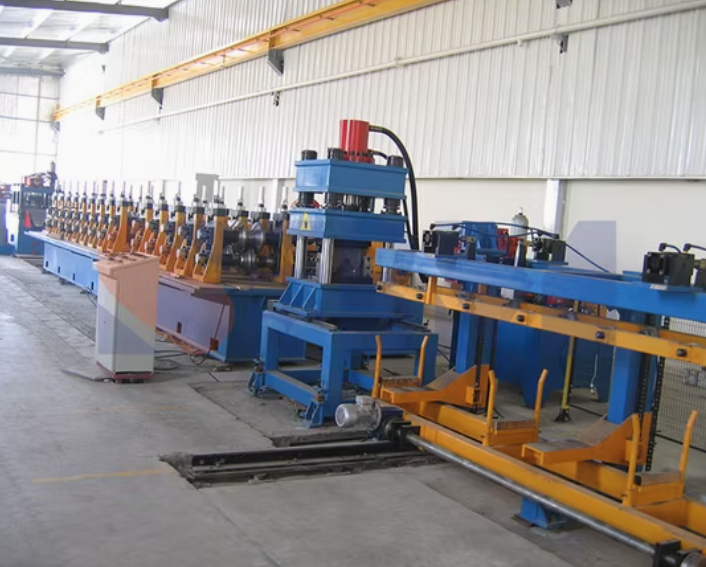To express an interest in this machine please submit the form below.

Not Sure What Machine You Need?
Select Your Profile, We'll Match It
Choose your desired profile drawing, and let Machine Matcher connect you with the best roll forming machine tailored to your needs.
Browse Profiles
A Steel Beam Roll Forming Machine is a specialized industrial equipment designed to produce high-quality steel beams used in construction, infrastructure, and heavy-duty applications. These machines provide precise, consistent, and efficient manufacturing of beams, meeting diverse industry needs in the USA.
With advanced automation and customizable designs, steel beam roll forming machines cater to various profiles, material grades, and project requirements. Their ability to work with high-strength materials ensures durability and compliance with American construction standards.
| Specification | Details |
|---|---|
| Material Input | Galvanized Steel, Stainless Steel, Carbon Steel, Aluminum |
| Material Thickness | 1.5mm – 10mm |
| Beam Types | H-beam, I-beam, U-beam, C-beam |
| Roller Materials | High-grade chromium steel with heat treatment for wear resistance |
| Machine Speed | 10–20 meters per minute (variable based on profile complexity) |
| Frame Structure | Heavy-duty welded steel frame |
| Hydraulic Cutting System | Integrated hydraulic cutting system with precise blade alignment |
| Punching System | Servo-controlled punching and notching for holes and slots |
| Control System | PLC (Programmable Logic Controller) with touchscreen interface |
| Power Supply | 220V/60Hz or 440V/60Hz (customizable for the USA market) |
| Machine Dimensions | Customizable based on production requirements |
| Weight | Approx. 20–30 tons (varies with configuration) |
| Safety Features | Safety guards, emergency stop buttons, and overload protection |
A: Steel beam roll forming machines offer:
A: Yes, these machines can be customized to produce H-beams, I-beams, U-beams, and C-beams with quick profile change capabilities.
A: Regular maintenance includes:
A: Yes, all machines are designed to meet OSHA and other regulatory standards in the USA, ensuring safe operation.
A: The machine can be configured for 220V/60Hz or 440V/60Hz to align with the USA’s power grid.
A: The machine can be tailored to specific needs, including material types, profile dimensions, punching patterns, and speed requirements.
A: Key industries include construction, automotive, aerospace, and energy sectors.
Copyright 2026 © Machine Matcher.